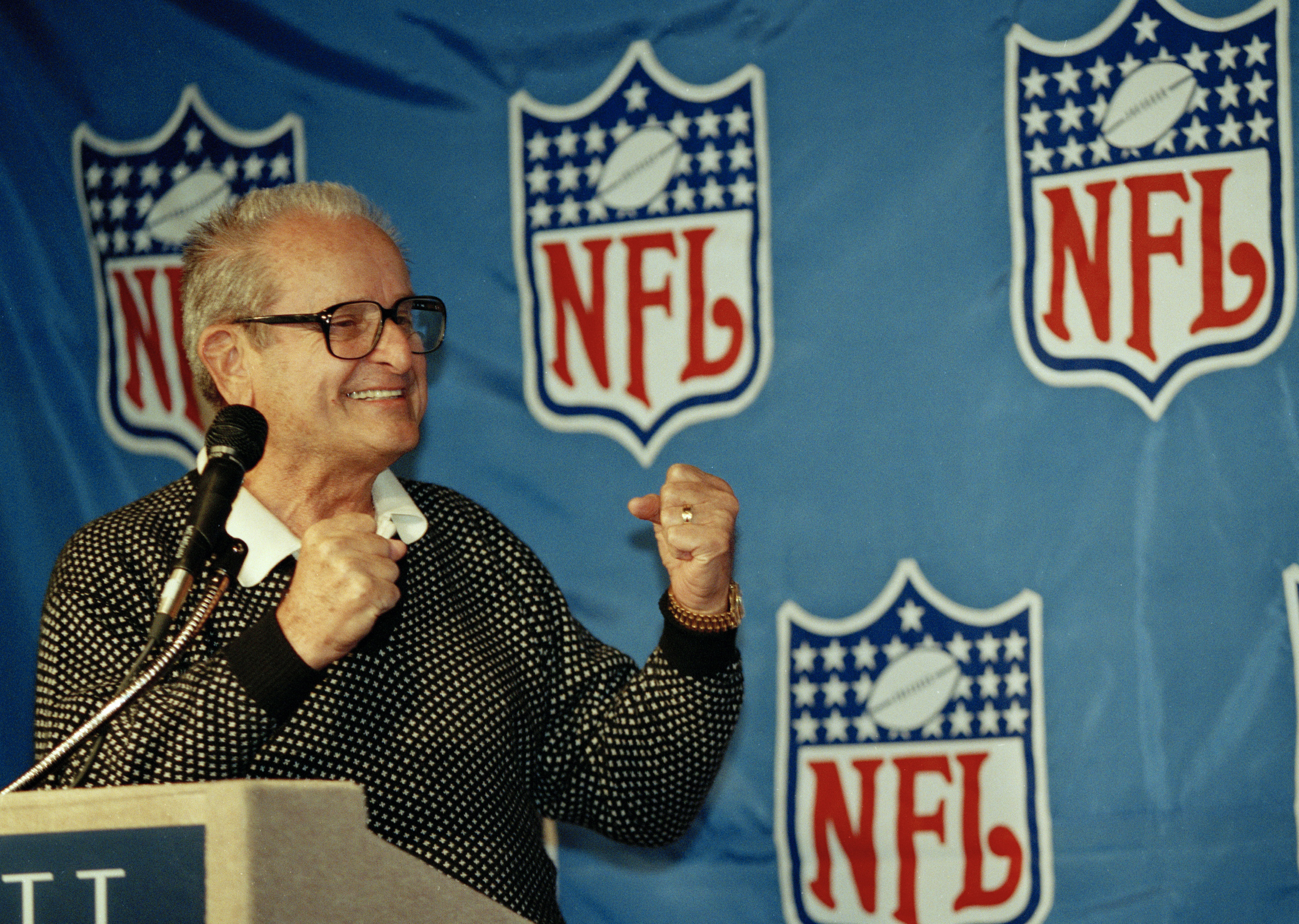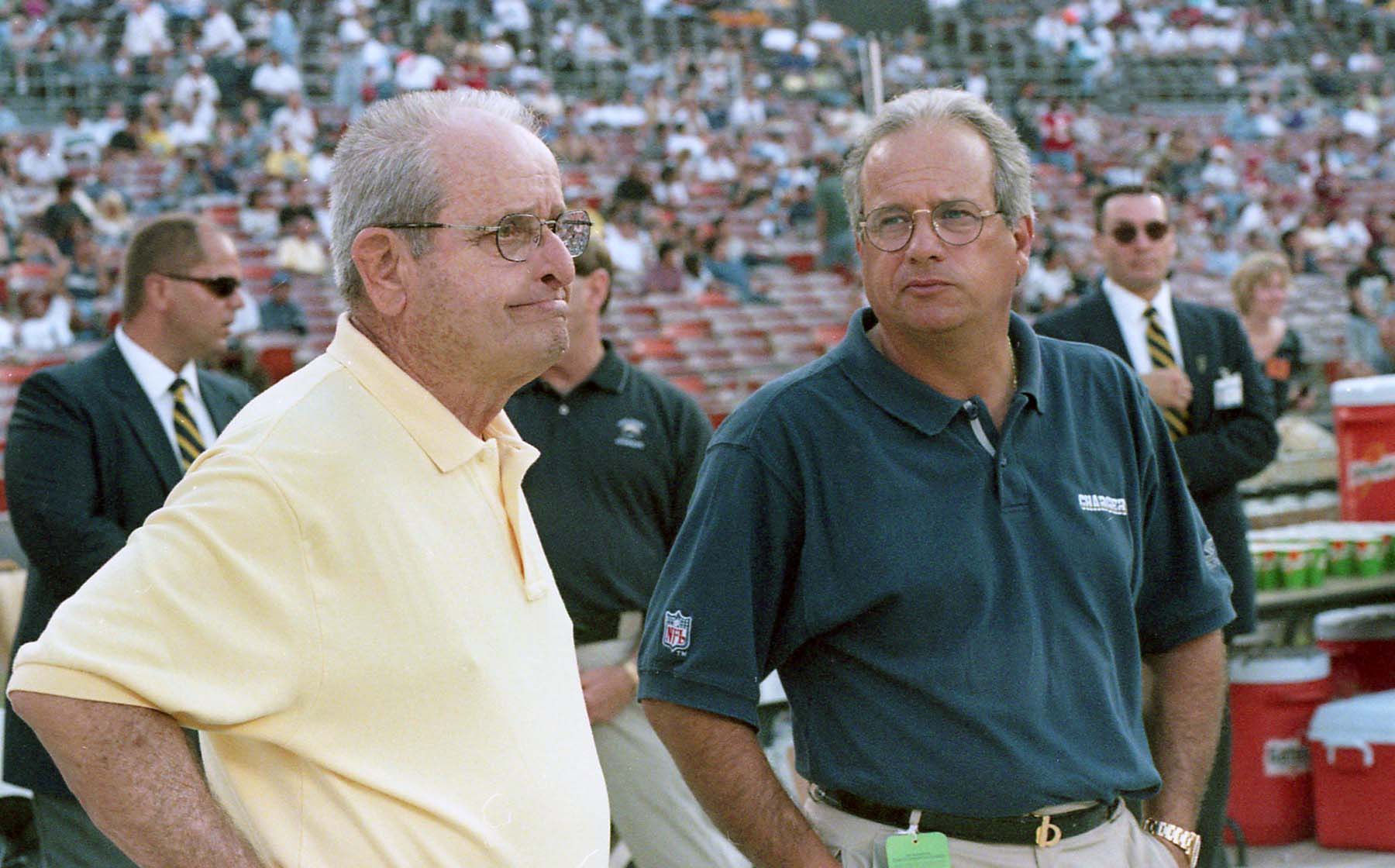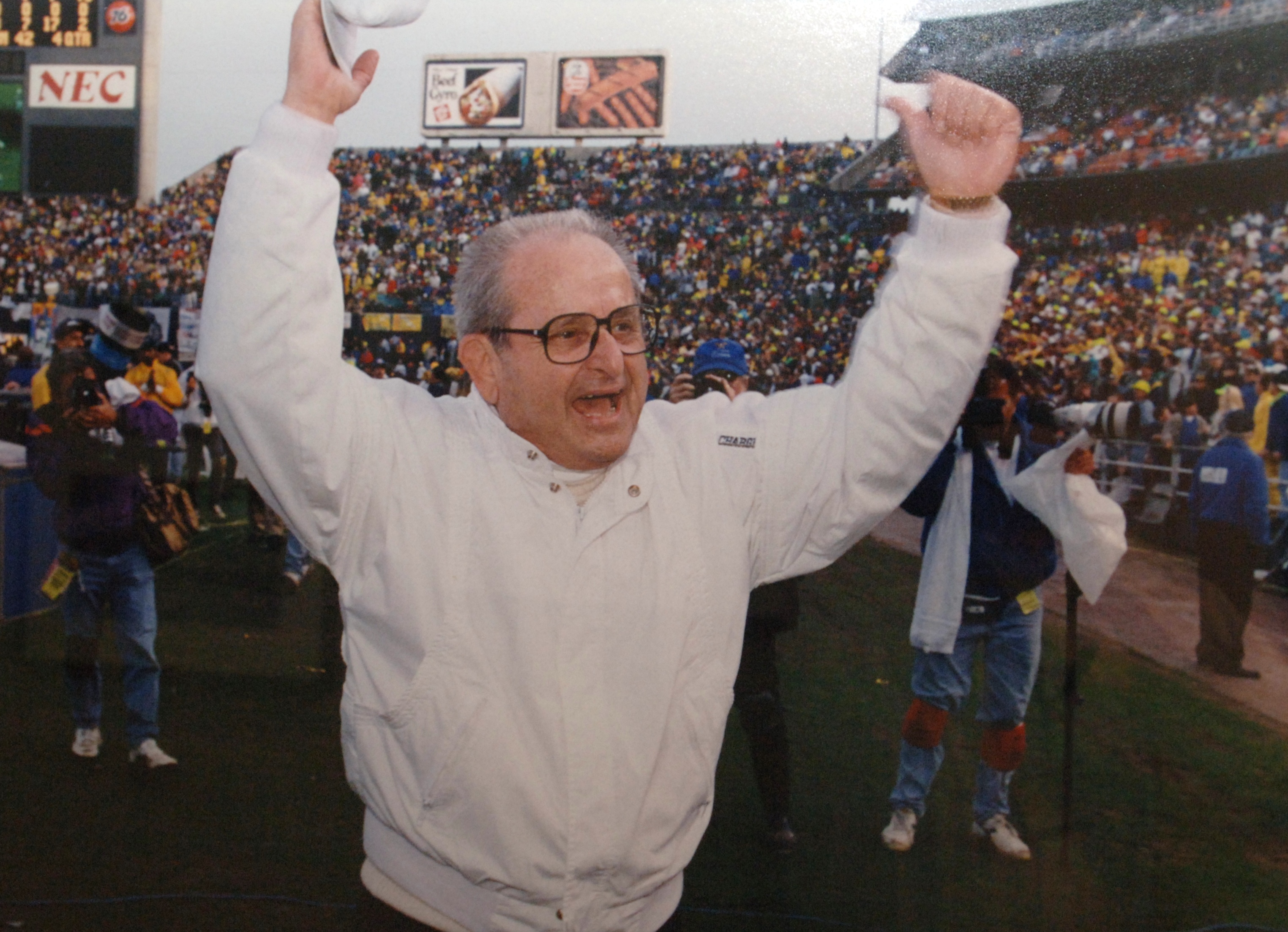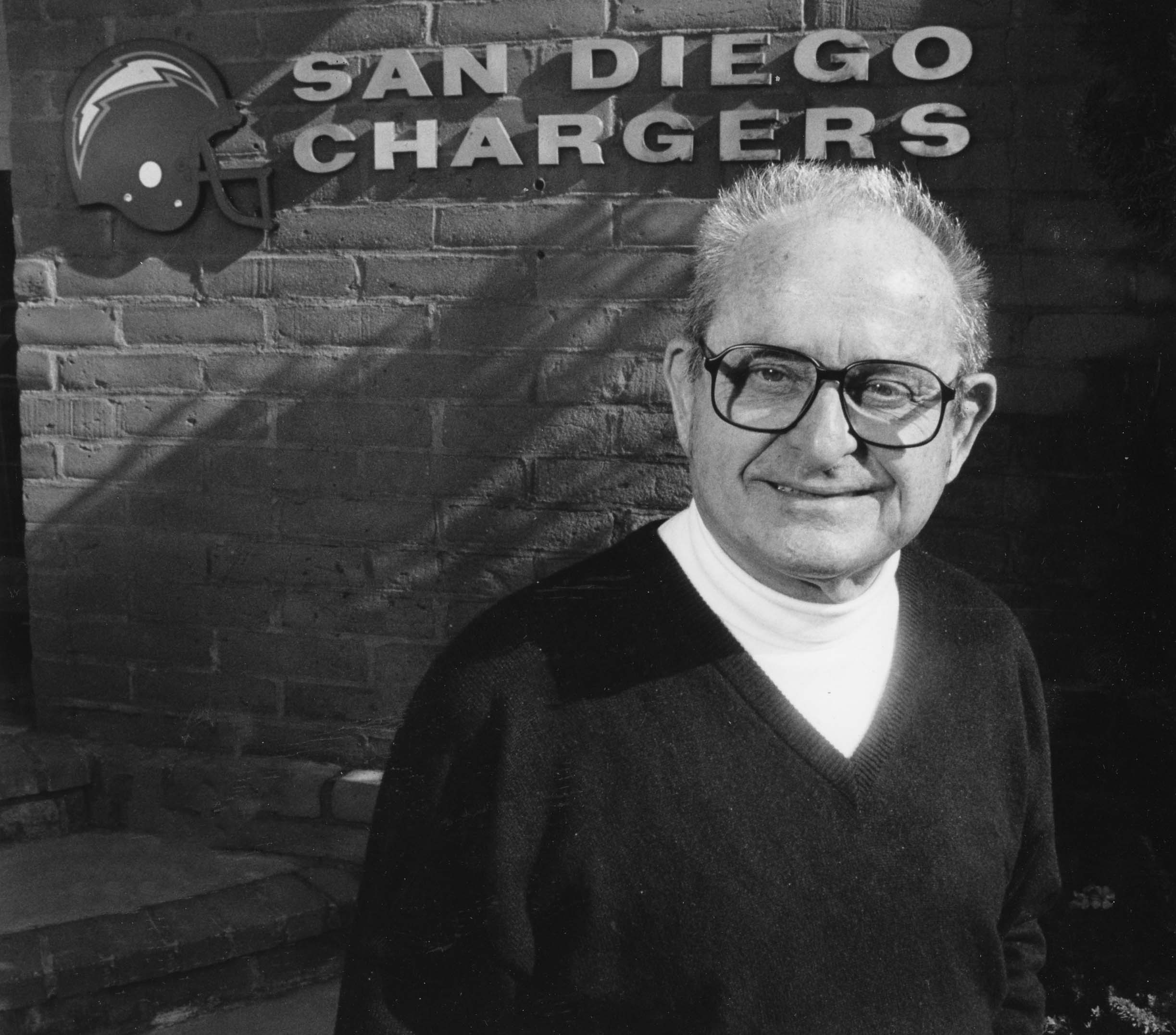
Alex Spanos was a driving force in professional, collegiate sports
With his business acumen and pragmatic approach to solving problems, Alex Spanos became a pivotal figure at key moments in National Football League history during his tenure as owner of the San Diego Chargers, now the Los Angeles Chargers.
“Alex was a fellow that really was well-respected,” late Pittsburgh Steelers owner Dan Rooney, who died last year, told The Record in 2007. “When he spoke, everybody listened. He believed in getting things done. He was not a procrastinator. If anything, he would lose his patience about not getting anything done. He was always that way.”
Spanos, the self-made Stockton real-estate magnate, died Tuesday morning at the age of 95. His fellow NFL owners remember him as a man who helped the league move forward at times when deadlocks over significant issues seemed insoluble.
Dallas Cowboys owner Jerry Jones said his admiration for Spanos’ business accomplishments was a major factor in his decision to buy an NFL franchise in 1989.
“He was a real role model for me when I first came into the league — to observe and listen and consult with,” Jones said. “He had really good opinions — good, logical opinions. He thought like an entrepreneurial businessman, yet tailored that to the unique structure of the NFL.”
Rooney and Jones both had praise for Spanos for his efforts in helping to resolve the 1987 players’ strike, for breaking a logjam and facilitating the election of Paul Tagliabue as the NFL’s commissioner in 1989 and for working on the expansion committee in the 1990s that brought the Carolina Panthers, Jacksonville Jaguars and Houston Texans into the league.
“He was so involved in whatever the issue was at the time,” Rooney said. “He’d be in there talking and trying to get it moving.”
Said Jones: “He had a good feel and instinct about how to be responsible to your team, your franchise, your fans and your market, yet balance that against the league’s best interests.”
In 1994, Spanos reduced his involvement in the Chargers, passing the reins to his oldest son, Dean. In 2006, he stepped back from the team completely.
Had things turned out differently in 1977, Dean Spanos said his father might have become the owner of what used to be his favorite NFL team, the San Francisco 49ers. According to Dean Spanos, his father was on the verge of purchasing the 49ers, only to be aced out of the deal at the 11th hour by Edward DeBartolo Sr.
In 1980, Spanos bought a 10-percent interest in the Chargers, and four years later he purchased the franchise from Gene Klein.
“It was really a dream come true for him,” Dean Spanos said in an interview in 2007. “For the next seven or eight years, he spent almost all his time in San Diego.”
Alex Spanos played a vital role in leading San Diego’s efforts to host the Super Bowl following the 2002 season.
“He came to the league meeting and made a talk, and he brought in people he thought would help,” Rooney recalled in 2007. “He was the force that got it there, no question about it.”
The Chargers had some bad teams during Alex Spanos’ reign, but they also went to their only Super Bowl following the 1994 season, losing badly to the 49ers. Dean Spanos remembers well the scene in Pittsburgh following the 1994 AFC Championship Game victory over the Steelers that lifted the Chargers into Super Bowl XXXVII.
“The most excited I ever saw him was in Pittsburgh when we beat Pittsburgh to go to the Super Bowl,” Dean Spanos said. “Watching him in the locker room, I think it was the happiest I’d seen him as owner of the San Diego Chargers. That was the pinnacle, the highlight of owning the team.”
Spanos' footprint on athletics extended well beyond the NFL. In fact, he had an athletic background of his own, receiving varsity letters in swimming and diving at University of the Pacific, from which he graduated in 1948.
Years later, Spanos was the driving force and major contributor to the construction of the Alex G. Spanos Center, the home facility for Pacific basketball and other sports, and the site of major community events and graduations. He also gave to Amos Alonzo Stagg Memorial Stadium’s Pacific Club in 1973 when Pacific had a football team. Spanos also played a leading role in recruiting the San Francisco 49ers to hold their training camps in Stockton in from 1998 to 2002, and his $10 million donation to California State University, Sacramento upgraded the athletic facilities with the Alex G. Spanos Sports Complex and helped lure the U.S. Track and Field Trials to Sacramento in 2000 and 2004.
“Alex was always a football enthusiast,” said Douglass Eberhardt, CEO and chairman of the Bank of Stockton. “He loved football and he had a huge place in his heart for Pacific. We had great times together there watching the Tigers play, and I always knew from that that it was a goal of his to own his own professional football team.”
Said Janet Lucas, Pacific's athletic director: “Alex Spanos was a difference-maker who was strategic and forward thinking without limits. His loss is felt deeply by the university, communities and lives touched through his philanthropic and business endeavors. Mr. Spanos has been instrumental in supporting and elevating the Pacific athletics program over decades, which intrinsically impacted the lives of countless students. His influence on the growth and development of the Stockton community ... will live on through his greatest achievement, the Spanos family legacy.”
Contact reporter Roger Phillips at (209) 546-8299 or rphillips@recordnet.com. Follow him on Twitter @rphillipsblog.


